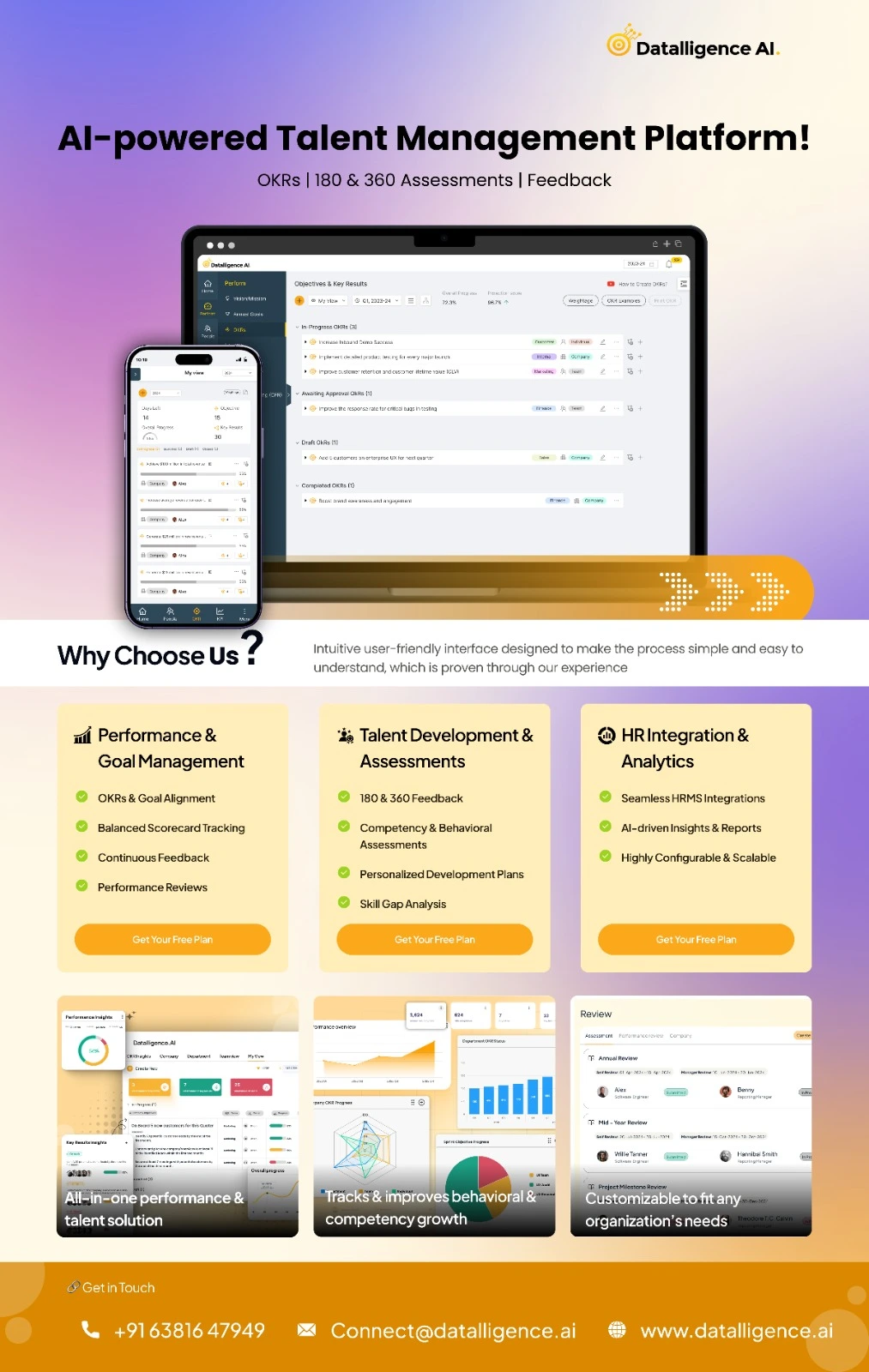Employee engagement is a crucial factor in business success, yet studies show that many organizations struggle with it. According to Gallup, only 32% of U.S. employees are engaged in their work, while globally, the number drops to just 23%. This lack of engagement results in lower productivity, higher turnover rates, and decreased profitability. On the other hand, companies with high employee engagement report 21% higher profitability, 17% higher productivity, and up to 59% lower employee turnover. These statistics underscore the importance of investing in employee engagement strategies to build a more committed and high-performing workforce.
The Importance of Employee Engagement
A highly engaged workforce is an asset to any organization. Employees who feel valued, supported, and aligned with the company’s mission are more likely to be productive, innovative, and committed to their roles. Engagement directly impacts job satisfaction, collaboration, and overall workplace morale. Furthermore, businesses that actively promote employee engagement see improvements in customer satisfaction, as motivated employees tend to provide better service and create stronger client relationships.
From a financial perspective, disengaged employees can be costly. Studies estimate that disengagement costs U.S. companies around $450–$550 billion annually due to lost productivity. Investing in employee engagement not only improves workplace culture but also positively impacts the bottom line by reducing recruitment and training expenses associated with high employee turnover.
Strategies to Improve Employee Engagement
Effective Communication: Open and transparent communication fosters trust and inclusion. Regular team meetings, one-on-one check-ins, and feedback sessions ensure that employees feel heard and valued.
Recognition and Rewards: Employees who receive recognition for their contributions are more likely to stay engaged. Rewarding achievements through bonuses, promotions, or public acknowledgment increases motivation and satisfaction.
Opportunities for Growth: Career development initiatives such as mentorship programs, leadership training, and skills development workshops enhance employee engagement by showing a commitment to professional growth.
Work-Life Balance: Encouraging flexible schedules, remote work options, and wellness initiatives can prevent burnout and contribute to long-term engagement.
How Goal Setting Can Improve Employee Engagement
Clear and measurable goals give employees a sense of purpose and direction. When employees understand what they need to achieve, they are more likely to stay motivated and focused. One of the most effective ways to set goals is by using the OKR (Objectives and Key Results) framework, which ensures alignment between individual efforts and company objectives.
Organizations that implement OKRs see significant improvements in engagement levels. By setting challenging yet attainable goals, employees feel a sense of accomplishment and purpose. The best OKR software helps track progress, provide real-time feedback, and keep teams aligned, further enhancing engagement. When employees see the impact of their work and understand how their contributions fit into the bigger picture, they are more likely to stay invested in their roles.
Creating an Engaging Remote Work Experience
One of the biggest challenges of remote work is employee engagement. Studies show that 19% of remote employees feel isolated. Organizations must create a workplace experience that fosters belonging and collaboration.
Strategies to Enhance Employee Experience
Structured Onboarding
Onboarding remotely should be interactive and enjoyable. New hires should feel welcomed and equipped with the right tools from day one. Organizations can enhance the onboarding experience by:
- Using video introductions: Pre-recorded or live video introductions from leadership and team members can help new employees understand the company culture and values.
- Facilitating virtual meet-and-greets: Scheduling informal online gatherings where new hires can meet their colleagues in a relaxed setting encourages relationship-building.
- Providing structured training programs: A well-structured training plan, including self-paced learning modules, live training sessions, and Q&A opportunities, ensures new employees can adapt quickly.
- Assigning mentors or buddies: Pairing new employees with experienced colleagues helps them navigate the organization and feel supported from the beginning.
Regular Check-Ins
Encourage meaningful interactions through weekly team meetings and one-on-ones to ensure employees feel connected and heard. Best practices for check-ins include:
- Scheduling consistent weekly or bi-weekly meetings: This keeps communication lines open and provides opportunities for updates, feedback, and discussion.
- Using collaborative tools for tracking progress: Platforms like Slack, Microsoft Teams, or Asana help ensure employees stay aligned with team goals and expectations.
- Encouraging open-ended discussions: Allow employees to share concerns, achievements, or challenges freely to foster trust and engagement.
Smart Tools for Engagement
Utilize collaboration tools that facilitate communication and engagement among remote teams. Some effective ways to boost engagement include:
- Implementing interactive platforms to enable interactive brainstorming and teamwork.
- Encouraging informal communication channels for non-work discussions can replicate the office watercooler experience.
- Hosting virtual events and team-building activities: Online games, trivia, and themed virtual events can help maintain team cohesion and morale.
Recognition & Appreciation
Fostering a positive workplace culture by acknowledging efforts regularly boosts employee motivation and satisfaction. Ways to enhance recognition include:
- Implementing a structured recognition program: Use tools like Bonusly or Kudos to allow peer-to-peer recognition in a transparent and engaging way.
- Celebrating achievements in team meetings: Acknowledge employees’ accomplishments during team calls to make them feel valued.
- Providing meaningful rewards: Offering personalized rewards, such as gift cards, extra time off, or professional development opportunities, shows employees that their efforts are appreciated.
- Encouraging leadership involvement: When leaders recognize employee contributions publicly, it reinforces a culture of appreciation across the organization.
Driving Value with OKR SaaS Tools

In today’s fast-evolving business landscape, many organizations, especially those operating in remote or hybrid setups, struggle to create and sustain value. The absence of in-person collaboration can lead to misalignment, lack of engagement, and reduced visibility into individual and team contributions.
However, OKR SaaS tools provide a structured approach to goal setting, tracking, and execution. These tools help organizations define clear objectives, measure progress, and foster a results-driven culture. By ensuring alignment between company goals and individual efforts, OKR software empowers teams to remain focused, agile, and motivated—regardless of their physical location.
Startups, in particular, benefit immensely from OKR SaaS tools due to their dynamic and fast-paced nature. Here are some key ways these tools drive value:
Multi-Directional Feedback
Traditional performance reviews often follow a top-down approach, which can limit meaningful insights and engagement. OKR software encourages multi-directional feedback, allowing:
- Employees to provide peer-to-peer feedback and learn from each other.
- Managers to give real-time insights rather than waiting for annual reviews.
- Teams to engage in self-assessments, increasing accountability and self-improvement.
By fostering open and transparent communication, employees feel heard, valued, and motivated to improve continuously.
Wellness Initiatives
With remote work becoming the norm, organizations must address digital fatigue and the mental well-being of employees. OKR tools can integrate with wellness programs by tracking initiatives such as:
- Mindfulness & mental health resources, including meditation sessions and counseling services.
- Flexible work hours, ensuring employees maintain a healthy work-life balance.
- Productivity insights, helping individuals manage workloads effectively to prevent burnout.

Prioritizing employee wellness directly correlates with increased engagement, higher job satisfaction, and better performance.
Employee Benefits & Support
Startups must offer more than just competitive salaries to attract and retain top talent. OKR software can help track and measure the impact of comprehensive employee benefits, including:
- Learning & development opportunities (online courses, mentorship programs).
- Family-friendly policies, such as parental leave and childcare support.
- Health & financial assistance programs, ensuring employees and their families receive the necessary support.
By aligning employee well-being with company objectives, organizations can foster a culture of loyalty and long-term commitment.
Recognition & Rewards Programs
Employees who feel valued are more likely to be engaged and productive. OKR tools can support recognition programs by:
- Enabling public appreciation for individual and team achievements.
- Linking performance to incentives, such as bonuses or promotions.
- Encouraging peer recognition, where colleagues can acknowledge each other’s contributions.
By integrating structured recognition within the OKR framework, organizations can boost morale, reinforce positive behaviors, and drive high performance.
The Importance of Face-to-Face Interactions
While remote work provides employees with greater flexibility, autonomy, and convenience, it also presents challenges in building strong interpersonal connections. Human connection remains irreplaceable, as in-person interactions foster deeper relationships, enhance communication, and create a sense of unity within teams.
To bridge the gap created by remote or hybrid work environments, organizations should invest in periodic face-to-face engagements such as team meetups, off-site gatherings, or interactive workshops. These initiatives serve multiple purposes, including:
Strengthening Team Synergy and Interpersonal Relationships
When employees meet in person, they can engage in meaningful conversations, spontaneous brainstorming sessions, and informal networking—all of which contribute to stronger team cohesion. Body language, tone, and non-verbal cues play a crucial role in communication, and these elements are often lost in virtual interactions.
Face-to-face meetings help:
- Build trust and camaraderie among team members.
- Encourage open discussions without the constraints of virtual fatigue.
- Reduce misunderstandings that may arise from text-based communication.
By nurturing genuine relationships, employees feel more connected to their colleagues and the organization as a whole.
How to Manage Remote Teams and Increase Employee Engagement
With remote work becoming more prevalent, organizations must adopt new strategies to maintain employee engagement. Managing remote teams effectively requires intentional efforts to ensure employees remain connected, motivated, and productive.
-
Regular Virtual Check-Ins: Scheduling consistent video calls and virtual meetings fosters team cohesion and helps address any challenges remote employees may face.
-
Clear Expectations and Goals: Transparent objectives ensure that remote employees stay aligned with company priorities and feel accountable for their work.
-
Encouraging Collaboration: Utilizing digital collaboration tools such as project management software and instant messaging platforms helps maintain efficiency and teamwork.
-
Employee Well-being Programs: Remote employees can feel isolated, making wellness programs, virtual team-building activities, and mental health initiatives essential for engagement.
-
Recognition in a Virtual Environment: Acknowledging employee contributions through virtual town halls, online recognition platforms, and personalized messages strengthens motivation and engagement.
Measuring Employee Engagement
To refine engagement strategies, organizations must continuously measure and analyze engagement levels. Employee surveys, feedback sessions, and performance evaluations provide valuable insights that can guide improvements. Companies that track engagement metrics can proactively address issues and implement initiatives that enhance workplace satisfaction and retention.
The Future of Employee Engagement
As the workplace continues to evolve, businesses must prioritize employee engagement to stay competitive. Investing in digital tools, enhancing leadership training, and adapting to employee needs will be crucial in maintaining high engagement levels. By leveraging best OKR software, goal-setting frameworks, and innovative engagement strategies, organizations can build a motivated and high-performing workforce.
By prioritizing employee engagement, companies can drive long-term success, increase productivity, and create a workplace culture that attracts and retains top talent.
Conclusion
Remote and hybrid work models are here to stay. To thrive in this new landscape, organizations must leverage structured frameworks like OKR software. The right OKR SaaS tools not only drive goal alignment but also enhance employee engagement, foster collaboration, and empower data-driven decision-making.
Datalligence offers top-tier OKR software that integrates Conversations, Feedback, and Recognition (CFR), all designed to boost employee engagement. If you’re managing a remote or hybrid team, try our OKR software for startups today and experience a seamless approach to goal-setting, performance tracking, and engagement.











